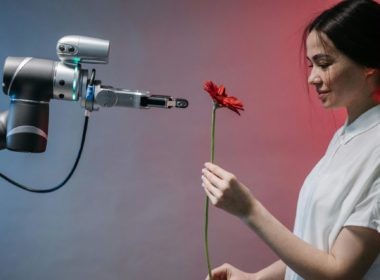The rapid advancement of Artificial Intelligence (AI) in recent years has sparked concerns about its impact on employment.Will the rise of AI result in job loss? Will it bring about new possibilities and reshape the future of work? In this blog post, we will delve into employment trends. Explore how AI may influence various industries.
1. Embracing Automation
AI-powered automation is already revolutionizing industries worldwide. Machines can efficiently perform tasks that once required intervention. This has raised concerns about job displacement for manual labor or routine-based jobs. However, history has shown that new technologies typically generate more jobs than they replace. While specific roles may be affected, fresh opportunities will arise to support and complement AI systems capabilities. For instance, skilled professionals will be needed to develop and maintain the best AI tools for business, leading to career paths.
2. Augmented Intelligence: A Collaborative Approach
Contrary to belief, the future of work is not solely focused on replacing workers with AI technology. Instead, the focus is on intelligence, where AI systems collaborate with humans to enhance their capabilities and increase productivity. This shift towards an approach is expected to reshape how we work, leading to the emergence of roles and job opportunities.
AI can support humans in analyzing amounts of data, identifying patterns, and making decisions based on data. This allows workers to concentrate on tasks that require creativity, emotional intelligence, and critical thinking in areas where humans excel. Consequently, careers that involve creativity, problem-solving abilities, and strong interpersonal skills are likely to experience a surge in demand in the future.
3. Skill Development
Furthermore, as AI becomes more prevalent in workplaces, workers need to upskill or reskill themselves to stay relevant. Jobs that involve routine-based tasks are more susceptible to automation, while those requiring problem-solving or specialized skills are less likely to be automated.
Individuals must develop skills that complement AI systems to adapt effectively to the evolving job market dynamics. This may involve acquiring proficiency in AI tools, understanding data analytics concepts, or gaining expertise in areas where AI is less likely to replace workers. Embracing learning and continuously improving one’s skills will become essential for workers aiming for success in the future.
4. Changing Industries
Artificial intelligence (AI) has the potential to revolutionize industries, opening up opportunities and transforming the nature of work. Let’s explore sectors that are expected to change.
- Healthcare: AI-powered systems can analyze patient data, assist in diagnoses, and enhance personalized treatment plans. This will enable healthcare professionals to provide efficient care while also creating a demand for AI and data analysis experts.
- Retail: AI can significantly enhance the customer experience by offering recommendations, optimizing inventory management, and streamlining supply chain operations. Retail workers must develop skills in data analysis, customer service, and online marketing to navigate this evolving landscape.
- Manufacturing: The combination of AI and robotics is already transforming the manufacturing industry by making processes more efficient. While machines may replace some jobs, new roles will emerge in robotics maintenance, programming, and process optimization.
- Finance: In finance, AI can automate tasks like data entry and fraud detection. This allows professionals to focus on higher-value activities such as analysis and strategic decision-making. To remain competitive, finance professionals will need to acquire data analysis, machine learning, and risk management skills.
5. Ethical and Social Considerations
As AI becomes more integrated into the workplace, we must also address the social implications that arise. It is crucial to ensure that AI systems are transparent and unbiased and do not perpetuate existing inequalities. Responsible development and use of AI are vital to ensure the distribution of its benefits without dividing society.
In summary, while the advent of AI may result in job displacement in areas, it also brings forth opportunities. As AI systems enhance abilities, workers must adapt and acquire skills complementing AI capabilities. Learning and skill development throughout life will be crucial for individuals to thrive in the job market. By embracing AI’s potential while considering aspects, we can shape a work environment that benefits humans and machines.












